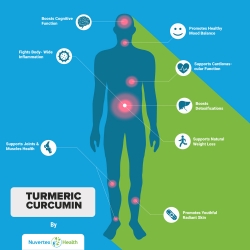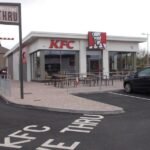In towns across the United Kingdom and Ireland, people like Aisha Patel, a 22-year-old student in Birmingham, see a glimmer of opportunity as KFC pledges $2 billion over five years to open 500 new restaurants and modernize 200 existing ones. For Patel, who juggles part-time work with studies, the promise of 7,000 new jobs could mean financial stability. The investment, announced Tuesday, touches not just balance sheets but the lives of workers, families, and small business owners hoping for a brighter economic future.
The plan allocates 1.49 billion pounds to expand KFC’s footprint, with 466 million pounds dedicated to building new drive-thrus and flagship restaurants, particularly in northwest England and Ireland. Another 583 million pounds will fund roles like cooks, managers, and guest experience leads, adding to KFC’s current workforce of 30,000. Existing locations will see upgrades, including digital kiosks and modern interiors, to meet growing demand for convenience. The company projects the initiative will generate 169 million pounds in direct economic value, impacting local economies where new outlets open.
For Patel, who dreams of a management career, the investment feels personal. “I’ve worked in fast food before, and it’s tough, but it taught me resilience,” she said. “A job at KFC could help me finish school without drowning in debt.” Similarly, for suppliers like Fiona Walsh, a poultry farmer in County Cork, Ireland, the expansion means steady orders for her small farm. “KFC’s business keeps my family going,” Walsh said. “More restaurants mean we can plan for the future.”
The investment arrives as the UK’s fried chicken market, worth 3.1 billion pounds, thrives amid a competitive fast-food sector. KFC, part of Yum! Brands, has grown steadily since its first UK outlet opened in 1965, with 2023 revenues of $2.8 billion and a 46.1% operating margin. The chain has added 200 locations since 2018, with system sales up 7% and same-store sales up 5% in 2023. The new plan builds on this momentum, targeting underserved towns where job opportunities are scarce.
“This investment is about people—our employees, customers, and communities,” said Rob Swain, KFC’s UK and Ireland general manager. “We’re creating jobs and spaces where families can gather.” A local business leader in Liverpool, Sarah Connolly, echoed this sentiment, noting the boost for struggling high streets. “New restaurants bring foot traffic, which helps everyone from baristas to shopkeepers,” she said.
Reactions blend hope with pragmatism. In Belfast, community organizer Liam Murphy welcomed the jobs but urged fair wages. “Young people need work, but it has to pay enough to live,” he said. An economic analyst, David Hughes, cautioned that inflation could erode the investment’s impact if costs rise faster than expected. “It’s a bold move, but the economy’s shaky,” he noted. For workers like Patel, the promise of stable hours and training programs outweighs such concerns, offering a path to growth.
The investment carries weight for communities and workers. In towns like Blackpool, where unemployment hovers above the national average, new KFC outlets could employ dozens, offering first jobs to teenagers like 17-year-old Callum Reid, who wants to save for college. Upgrades to existing restaurants promise better working conditions, easing the strain on staff like Patel who navigate busy shifts. The focus on digital tools aligns with customers’ shift toward delivery, a lifeline for parents like Maria Evans, who relies on quick meals during long workdays.
Challenges lie ahead. Post-Brexit supply chain issues and competition for prime locations could complicate the rollout. KFC’s goal to open 50 new sites this year, starting in Liverpool this fall, hinges on navigating these hurdles. For Walsh and other suppliers, consistent contracts are critical to sustaining their businesses. As communities await the first new hires and openings, the investment represents more than economic growth—it’s a chance for people like Patel, Reid, and Evans to build better lives. The coming months will show whether KFC’s vision delivers the stability they seek.


















